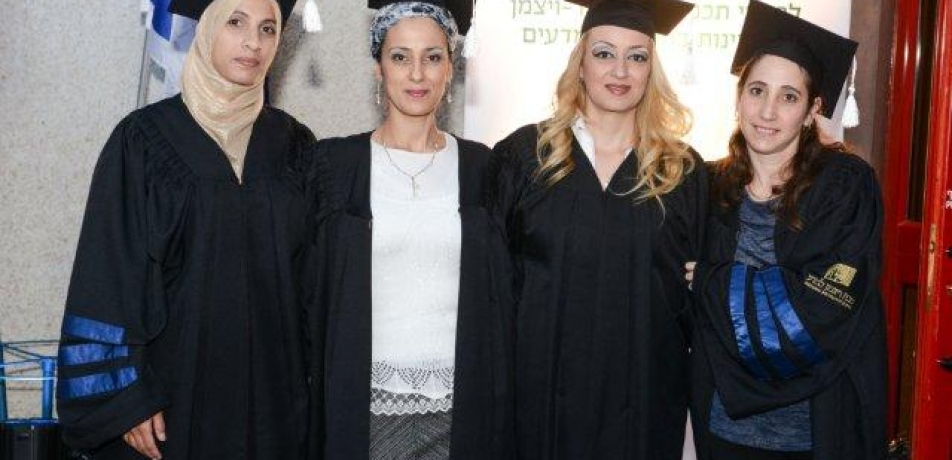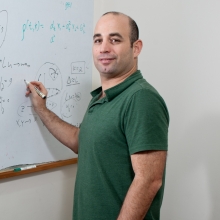Who will teach the teachers?
A decade of the Rothschild-Weizmann Program
Briefs

Given the rapid pace of scientific discovery today, school textbooks aren’t enough to keep teachers and students up-to-date.
With that in mind, the Weizmann Institute initiated the Rothschild-Weizmann Program for Excellence in Science Teaching in 2008 with the support of the Rothschild Caesarea Foundation, using a ‘teach-the-teachers’ approach to raise the quality of science education in Israel. Today, as the threshold of a decade approaches and the program has evidenced much success in advancing the academic and professional development of science and math teachers in Israel, the Weizmann Institute will continue funding for the program moving forward.
The program, which offers MSc degrees to active teachers, was initiated by the Department of Science Teaching as part of its mission to give teachers the tools to keep up with new trends in science and advance the level of science teaching in Israel. The department designed and established program works in collaboration with the scientific departments at the Institute; it is co-headed by Prof. Shimon Levit from the Department of Condensed Matter Physics and Prof. Bat Sheva Eylon from the Department of Science Teaching. To date, 208 teachers have received their MSc degrees from the program.
“In establishing this program, our goals were to empower science teachers and increase their motivation by providing them with unique opportunities to expand their knowledge,” says Prof. Eylon. “Our long-term goal is to serve as a trigger for raising the bar for science teaching across Israel.”
The program has two tracks: studies towards an MSc degree (non-thesis) in science teaching, and a post-MSc professional development track. The post-MSc development track is geared toward teachers with MSc or PhD degrees in science or science education and alumni of the program’s MSc track who wish to expand and enrich their teaching skills and science education knowledge.
Exposure to cutting-edge science
The MSc program exposes teachers to cutting-edge research in their respective disciplines inside Weizmann Institute laboratories, contemporary topics in general science, and innovations in science education. In addition, both during and after completion of their studies, participants receive guidance from Weizmann Institute scientists and educational staff as they initiate projects for implementation in the educational field.
Every year, approximately 35 teachers are enrolled in the program, with a focus in one of four disciplines: chemistry, mathematics, physics, and biology.
“Ninety percent of participants continue to teach after graduating and the majority say that the scientific and pedagogic knowledge they gained in the program has led to significant changes in their teaching practices,” says Prof. Eylon. About three quarters of the students who are taught by teachers who have gone through the program reported a noticeable difference in the approaches that their teachers employ in the classrooms.
“The program has enriched my knowledge in many relevant fields, among them molecular biology and bioinformatics,” said one alumna, Tirza Gidron, from Tiberius. Merav Ben David, from Ashkelon, said: “The Rothschild-Weizmann Program provided me, in a practical and thorough way, pedagogic tools in a range of subjects, which I now employ in class.”
The effects of the program are felt even beyond the classroom. Graduates are involved in assisting and advising peers and sharing their new knowledge in various forums. In addition to working as teachers, graduates are serving as general coordinators of all science disciplines in their respective schools, acting as professional advisors and mentoring and advising new teachers and teacher communities, and designing and enacting new learning materials. The program has also established a resource center with a collection of high-quality teaching materials developed by the participating teachers and lecturers of the various courses.








